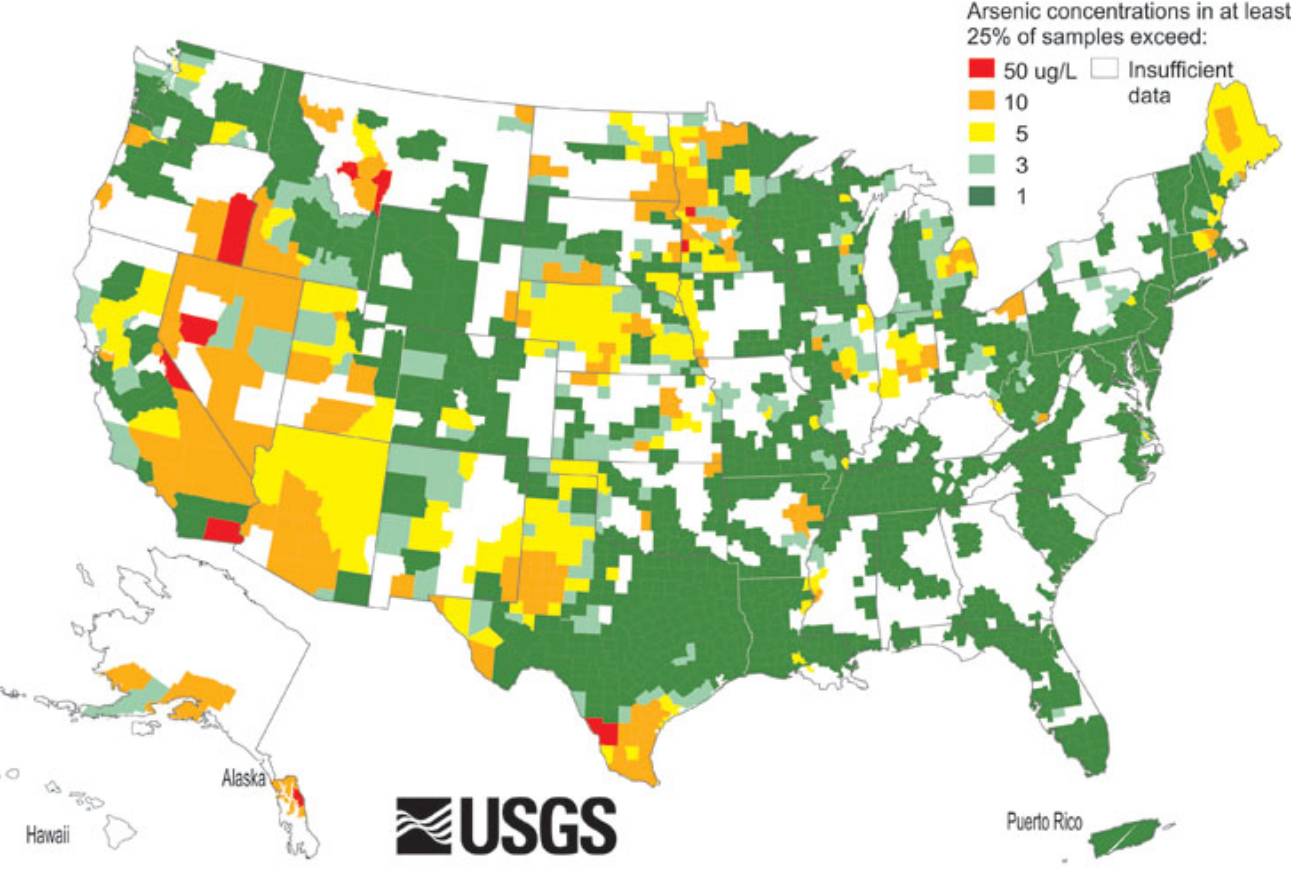
CONCORD, NH – New Hampshire has the highest rate of bladder cancer cases in the nation and a rate that is 37 percent higher than the national rate, according to the U.S. Centers for Disease Control and Prevention (CDC). One of the leading causes of bladder cancer in the state is exposure to arsenic in private drinking water wells.
In recognition of Bladder Cancer Awareness Month in May and Drinking Water Week (May 6-12), the NH Department of Health and Human Services (DHHS) and Department of Environmental Services (NHDES) encourage people with a private well to reduce their risk of bladder cancer and other health risks associated with arsenic exposure by testing their well water for arsenic every three years and treating the water if needed.
“Arsenic is commonly found in private wells in our state and exposure contributes to a host of health issues including bladder cancer,” said State Cancer Director Whitney Hammond. “Fortunately, there are steps we can take to help prevent health problems. The first and most important course of action is to test well water for arsenic, and to treat the water if needed. Anyone who is concerned about bladder cancer is encouraged to share those concerns with their doctor.”
Arsenic is a colorless, odorless, tasteless, semi-metal that can leach into groundwater and wells from natural deposits in soil and rock and from agricultural and industrial sources. Exposure is associated with a wide range of health effects in addition to bladder cancer, such as lung and skin cancer, heart disease and diabetes. Children who are growing and developing may be especially vulnerable to health risks including impaired brain development, growth problems and unhealthy immune systems. Research at Dartmouth has observed drinking water concentrations of arsenic in New Hampshire associated with blood pressure changes, gestational diabetes in pregnant women, and effects on fetal growth and infant infections, as well as a decrease in the ability of the lung to fight bacterial infection in experimental studies.
“Our studies raise the possibility that health effects due to arsenic exposure occur at various ages in the U.S. populations. These findings underscore how important it is for people to test their private wells to ensure their drinking water does not contain elevated concentrations, and to continue efforts to understand the health impacts of low level exposures,” says Margaret Karagas, Ph.D., Director of the Dartmouth Children’s Environmental Health and Disease Prevention Research Center at Dartmouth and Project Leader for the Dartmouth Toxic Metals Superfund Research Program.
The U.S. Geological Survey has estimated that one in five water wells in New Hampshire has arsenic at levels higher than what is allowed in public water systems. A 2014 study by researchers at Dartmouth College estimated that arsenic in water wells in New Hampshire is responsible for 830 cancer cases in the current population.
NHDES provides an online “Be Well Informed” tool to help well users understand their water test results and make informed decisions about water treatment. Dartmouth has created several resources for information on arsenic and exposure through food or other sources, which can be found through the Arsenic and You website. For a list of accredited labs providing well water quality testing services, visit this DHHS page on private well water.







